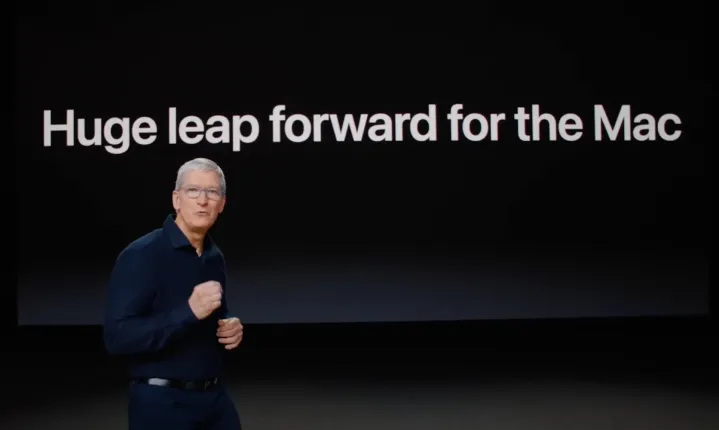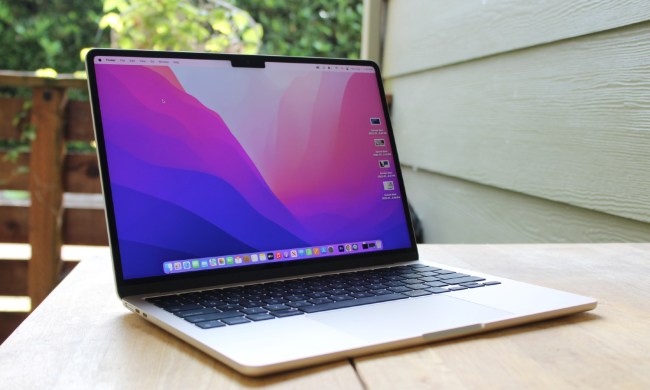
Apple has enjoyed three years of remarkable success for the MacBook. Heading into 2020, Macs felt like the ugly stepchild of Apple’s major product lines, often ignored in favor of updates to the iPhone, iPad, or Apple Watch. I never would have guessed that Mac hardware would become the most exciting aspect of Apple press events for the next few years.
But as 2023 comes toward its finish, MacBook sales have shrunken back down, just as rumors point to a holiday season lacking any new Mac releases. It’s clear that the massive surge in innovation and interest in the MacBook has fizzled out — even if that isn’t necessarily a bad thing in the long run.
A perfect storm

There are two primary reasons to explain all the success MacBooks have had over these past couple of years. COVID is the most obvious, of course, as it led to unprecedented growth in laptops, desktops, and PCs of all kinds. With workers fleeing offices, just about everyone needed an upgrade to their home office, which even led to a significant shortage in PCs. PC enthusiasts were happy to declare that the industry had been wrong about the death of the PC after all.
MacBooks were included in the boom, well before Apple made any changes to the lineup. According to IDC, Macs experienced a 22.5% growth from 2019 to 2020. The fourth quarter, which includes holiday shopping, was the Mac’s biggest quarter, of course, but there’s no doubt that the overall uptick in demand played a significant role in the growth.
Apple hit the jackpot in 2020.
But that’s long since been over. Again, according to the numbers from IDC, all laptops manufacturers other than Apple experienced a serious dip in year-over-year growth in 2022. If you’re HP, that’s by as much as 25%. Ouch. But Mac shipments were still up 2.5% in 2022, which means there was more to the increase in than just remote workers buying laptops.
That’s where the second big reason, Apple Silicon, comes into play. In 2020, Apple began to transition away from Intel to its own M-series chips. Despite all of the many things that could have gone wrong, the transition has been an undeniable achievement. Not only were M1 Macs were decidedly better than their Intel counterparts, but they offered a unique value proposition in the wider landscape of laptops. Major improvements to the MacBook Pro came in 2021, and just like that, the Mac returned to being the hottest subbrand in Apple’s ecosystem. Apple hit the jackpot, managing to release a fantastic new line of products right when the demand was unnaturally high.
The new normal

It’s 2023, and 2021 is long behind us. It’s been reported that MacBook sales have dropped 30% this year. It’s clear that we’ve already reached the peak of the Mac’s resurgence — and again, the reason it twofold. The natural slump that has brought PC sales back to where they were prior to the pandemic has finally reached the Mac, and there has been less excitement around the most recent crop of Macs.
Despite the fact that Apple has launched one brand new Mac this year (the 15-inch MacBook Air) and updated four others, there’s undoubtedly less hype around the Mac than there used to be.
First off, Apple usually holds a winter or late fall event focused on the Mac and iPad. In years past, it’s been used to launch devices as important as the M1 MacBook Air and the M1 Max MacBook Pro. Apple skipped this event in 2022, and from what we can tell so far, it’s also skipping in 2023. Beyond that, the latest reports indicate that we won’t see any Mac releases this fall.
The major change in the world of the Mac already happened back in 2020.
All that gives the impression that Apple is winding down the drumbeat of updates and releases. But it’s really more about setting realistic expectations for what these products are.
The major change in the world of the Mac already happened back in 2020. None of us should expect a moment of excitement and hype in the world of Mac that is quite like what happened in 2020 and 2021. It was a monumental moment in the Mac world, and one that changed these devices for the better.
Although the devices will no doubt get faster, thinner, and longer-lasting from here on out, everything is flowing from that major change in technology. But that’s not a bad thing — in fact, it should be exactly what Mac fans want.


